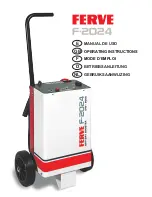
FORESTER NA. (E)
9-2
Exterior care
J
Washing
CAUTION
D
When washing the vehicle, the brakes may get wet. As a result,
the brake stopping distance will be longer. To dry the brakes,
drive the vehicle at a safe speed while lightly pressing the brake
pedal to heat up the brakes.
D
Do not wash the engine compartment. If water enters electrical
parts or the power steering fluid reservoir, it will cause engine
trouble or faulty power steering respectively.
The best way to preserve your vehicle’s beauty is frequent washing.
Wash the vehicle at least once a month to avoid contamination by road
grime.
Wash dirt off with a wet sponge and plenty of lukewarm or cold water. Do
not wash the vehicle with hot water and in direct sunlight.
Salt, chemicals, insects, tar, soot and bird droppings should be washed
off by using a light detergent, as required. If you use a light detergent,
make certain that it is a neutral detergent. Do not use strong soap or
chemical detergents. All cleaning agents should be promptly flushed
from the surface and not allowed to dry there. Rinse the vehicle thor-
oughly with plenty of lukewarm water. Wipe the remaining water off with a
chamois or soft cloth.
B
Washing the underbody
Chemicals, salts and gravel used for deicing road surfaces are ex-
tremely corrosive, accelerating the corrosion of underbody compo-
nents, such as the exhaust system, fuel and brake lines, brake
cables, floor pan and fenders, and suspension.
Thoroughly flush the underbody and inside of the fenders with luke-
warm or cold water at frequent intervals to reduce the harmful effects
of such agents.
















































